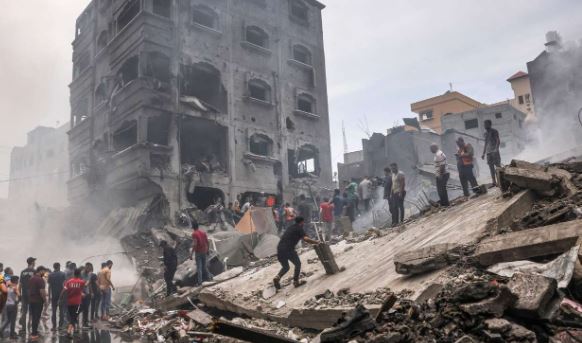
- Over 200 Israeli soldiers refuse to fight in Gaza, citing ethical concerns and psychological trauma from the conflict.
- Soldiers describe witnessing and participating in actions they deem morally untenable, including civilian harm and property destruction.
- International pressure mounts as Israel faces war crime and genocide allegations, with investigations by global courts.
- A toxic military culture discourages dissent and mental health support, exacerbating soldiers' psychological struggles.
- The soldiers' protest aims to demand accountability, spark change, and end the cycle of violence in Gaza.
In a rare and growing act of defiance, Israeli soldiers are refusing to continue fighting in Gaza, citing ethical concerns over the killing of civilians and the psychological toll of participating in a conflict they describe as morally untenable. At least 200 soldiers have signed a letter vowing to stop fighting unless the Israeli government secures a ceasefire, marking a significant moment of dissent within a military known for its unity and discipline.
The movement, though small, has gained traction as soldiers like Yotam Vilk, a 28-year-old officer in the armored corps, speak out about the horrors they witnessed. Vilk recounted the killing of an unarmed Palestinian teenager in a buffer zone, an act he says was part of a broader policy that dehumanized Palestinians. “He died as part of a bigger story. As part of the policy of staying there and not seeing Palestinians as people,” Vilk told the Associated Press.
The soldiers’ refusal to serve comes amid mounting international pressure on Israel to end the 15-month conflict, which has drawn accusations of war crimes and genocide from human rights groups. The International Court of Justice is investigating genocide allegations filed by South Africa, while the International Criminal Court is seeking the arrests of Israeli leaders, including Prime Minister Benjamin Netanyahu.
A moral reckoning
For many soldiers, the decision to refuse service stems from a moral reckoning with their actions in Gaza. Yuval Green, a 27-year-old medic, abandoned his post after witnessing soldiers desecrate homes and loot belongings as souvenirs.
Green described one particularly harrowing incident in which his commander ordered troops to burn down a house, claiming it could be used by Hamas. He said he felt the fire vindictive and saw no reason to take more away from the Palestinians than they had lost already.
The soldiers’ accounts align with allegations from international rights groups, which accuse Israel of indiscriminate violence and a failure to adequately investigate wrongdoing. Israel denies these claims, insisting it takes extraordinary measures to minimize civilian harm.
Despite the growing dissent, many soldiers face significant barriers to speaking out. The Israeli military discourages political activism among its ranks, and soldiers who refuse to serve risk imprisonment. Moreover, a culture of silence and stigma surrounds mental health issues, with some commanders reportedly belittling soldiers who seek help.
A recent investigation by Haaretz revealed that some officers have denied soldiers access to mental health professionals, dismissing their concerns as weakness. One soldier said his company commander accused him of betrayal when he sought psychological support, while another implied seeking help meant he was homosexual.
This toxic environment has exacerbated the mental health crisis among soldiers, many of whom suffer from “moral injury” — a psychological response to actions that conflict with one’s ethical beliefs. Tuly Flint, a trauma therapy specialist, said symptoms include flashbacks, insomnia, and feelings of unworthiness. “Talking about it and trying to spark change can help,” Flint said.
A call for change
The soldiers’ refusal to fight is not just an act of protest but a call for accountability and change. Max Kresch, an organizer with Soldiers for the Hostages, the group behind the letter, said soldiers have a moral responsibility to speak out. “We need to use our voice to speak up in the face of injustice, even if that is unpopular,” he said.
As the ceasefire talks continue, the soldiers’ dissent underscores the human cost of a conflict that has left deep scars on both sides. For Vilk, Green, and others, the decision to refuse service is a painful but necessary step toward breaking the cycle of violence. “I didn’t light the match, but I stood guard outside the house,” one anonymous soldier said. “I participated in war crimes. I’m so sorry for what we’ve done.”
Sources for this article include:
Please contact us for more information.






































